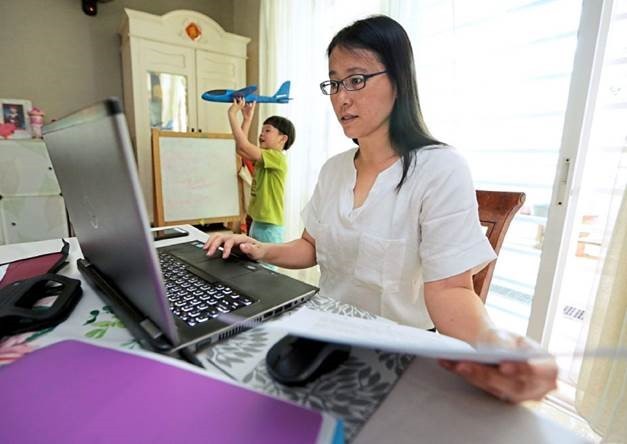
Image credit: AsiaOne
PETALING JAYA: Industry players are understanding of the government’s directive for one million workers to work from home but they say there will be a lot of issues in implementing the order.
The Malaysian Employers Federation (MEF) said they understood the government came up with the measure as many offices were located in confined spaces and air-conditioned.
However, MEF executive director Datuk Shamsuddin Bardan said businesses would be impacted as the results of the swab tests would take several days to be known.
He explained that some business would require the physical presence of employees as it might involve submission of documents, for example.
“It will be challenging when it comes to licences and permits as documents would have to be submitted physically, with no online submissions accepted, ” he said.
He added that since the conditional movement control order (MCO) was enforced on Oct 14 in the Klang Valley, many had noticed challenges in Internet connectivity.
“Another issue is whether confidential data can be safeguarded and not open to hacking. We know about the level of security in personal homes, compared to offices, ” he said, citing security concerns.
Small and medium-sized enterprises (SMEs) Association of Malaysia president Datuk Michael
Kang said the work from home arrangement was not possible for many of them.
“If the government insists on this, they should allow employers to ask workers to take unpaid leave or for the government to subsidise salaries if working from home is not possible, ” he said.
He added that some data was only stored in the office and that some employees did not have equipment to work from home.
He also questioned how all employees could be tested within a short span of time, citing bad experiences with previous government directives on testing.
Federation of Malaysian Manufacturers (FMM) president Tan Sri Soh Thian Lai said the industry would do its best to adhere to the directive and called on the government to institute stricter controls to break the chain of infections.
However, Soh said the work from home arrangement did not suit all and would affect the productivity of certain categories of employees.
“The government needs to understand the perspective of factories and their operations, where certain management and supervisory personnel would still be required to work on site to ensure production continuity, ” he added.
Soh hopes to see clearer guidelines and a seamless exemption process, including an efficient system to get the Covid-19 screening done for required employees.
Universiti Malaya virologist Prof Dr Sazaly Abu Bakar said the government’s directive was “draconian” but was not surprising as they had earlier alluded to failure by employers in preparing infrastructure to prevent the spread of the virus.
“Preventing workplace transmission is something they have to seriously look at to interrupt the transmission right now.
“The problem now is we don’t know who has been infected, especially in Sabah and Selangor.
“In the other states it is probably still under control, but in Melaka and Perak, cases are already up, ” he said.
However, Dr Sazaly noted that testing was also not the only way out as a negative result today did not mean they were free of the virus.
Source: https://www.thestar.com.my/news/nation/2020/10/21/implementing-wfh-will-create-challenges-say-bosses

